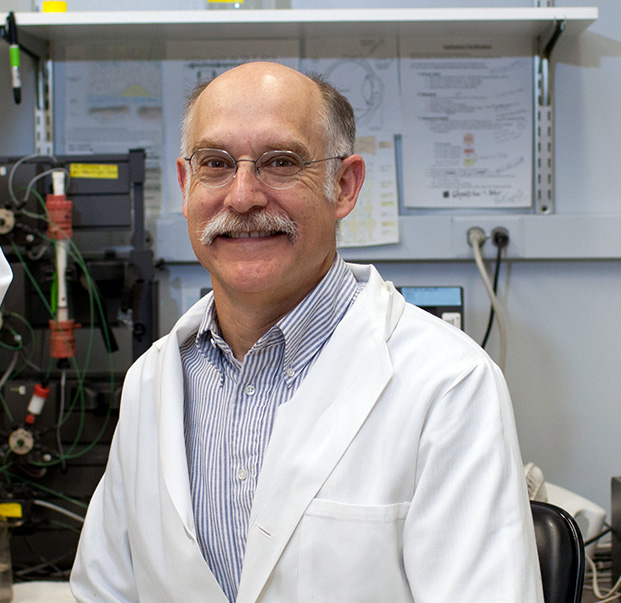Research Terms
This vector-based gene therapy encodes antibodies that block the stimulation of thyroid-stimulating hormone receptors (TSHR), which when activated can lead to hyperthyroidism. Graves’ disease is the most common form of hyperthyroidism, and is caused by stimulation of the TSHR by thyroid receptor stimulating antibodies (TrABs) and afflicts about 1.2 percent of Americans. Analysts project the global thyroid disorder treatment market to reach nearly $3 billion by 2022, due to an increase in thyroid disease cases along with growing awareness of thyroid disorders. Available medications for hyperthyroidism that block thyroid hormone production do not achieve lasting remission and require repeated administration. Other treatments include surgery or radioactive iodine, both of which may have risks.
Researchers at the University of Florida have developed a one-time treatment using an rAAV gene therapy vector that delivers anti-TSHR antibodies to reduce or block TSHR stimulation and prevent hyperthyroidism. This therapy can treat Graves’ disease, Grave’s eye disease (orbitopathy), or thyroid cancer where it is also desirable to block TSHR action.
Gene therapy using rAAV that produces anti-TSHR antibodies to treat diseases caused by hyperthyroidism
This gene therapy utilizes a recombinant adeno-associated virus to deliver a gene leading to the production of an anti-TSHR antibody or antibody fragment into a patient’s cells resulting in the production of anti-TSHR antibodies. This treatment results in the long-term production of the anti-TSHR antibody following a single administration. The antibodies the cell produces block TSHRs, preventing hyperthyroidism.
This gene therapy utilizes rAAV vectors to target metastatic medullary thyroid carcinoma cells, providing a treatment for the highly aggressive form of thyroid cancer. With available treatments, medullary thyroid carcinoma is incurable once metastasized; for example, tyrosine kinase inhibitors provide only palliative, not curative, treatment. While metastatic medullary thyroid carcinoma is a rare form of thyroid cancer, accounting for less than 12 percent of all thyroid cancers, its aggressive nature results in a high mortality rate of 72 percent for stage IV patients. Medullary thyroid carcinoma is treatable if diagnosed early, but is difficult to detect as the condition is rare and relatively symptomless. As a result, medullary thyroid carcinoma often metastasizes.
Researchers at the University of Florida have developed an rAAV vector gene therapy that treats metastatic medullary thyroid carcinoma by targeting the cancerous cells. This gene therapy utilizes unique targeting strategies and tissue-specific promoters. Additionally, this gene therapy can utilize calcitonin promoter/enhancer regions to further provide gene expression in metastatic medullary thyroid carcinoma cells.
Gene therapy that treats metastatic medullary thyroid carcinoma through rAAV vector targeting
Most cases of medullary thyroid carcinoma result in the disease metastasizing; further, current treatments, including the use of tyrosine kinase inhibitors, stop medullary thyroid carcinoma’s progression but do not cure the disease. This gene therapy for metastatic medullary thyroid carcinoma cells uses specific rAAV vectors, targeting strategies, and tissue-specific promoters to treat medullary thyroid carcinoma. In particular, it utilizes particular mutations of rAAV2 vectors, modified to include capsid surface amino acids, to enhance transduction efficiency in targeted cells. The gene therapy combines these mutated rAAV vectors with tissue-specific promoters to target and treat metastatic medullary thyroid carcinoma cells. It incorporates engineered calcitonin promoter/enhancer regions into the mutated rAAV vectors, resulting in specific gene expression in the targeted metastatic medullary thyroid carcinoma cells.

















































































2033 MOWRY ROAD ROOM 492-A CANCER AND GENETICS RESEARCH COMPLEX GAINESVILLE, FL 326110001
